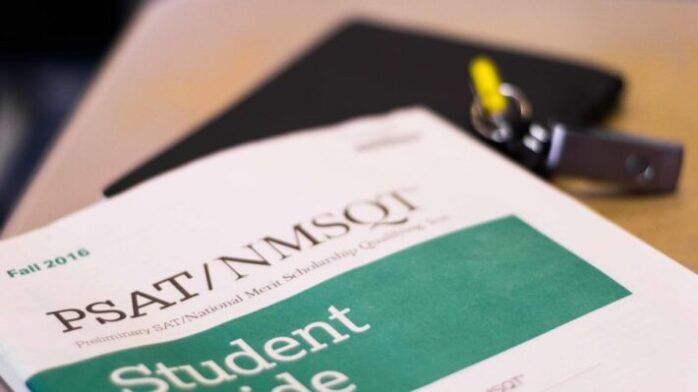
Preparation for college is one of the most stressful periods in everyone’s life. There are so many details to take care of and so much studying that young people finishing high school often feel at loss. You have to make a decision that will directly influence the next four years of your life and indirectly your entire future.
To make things a bit easier for you, we have created a list of things you need to do in order to be admitted to the college of your choice. Colleges require that you show a degree of “college readiness” and to prove it to them, you need to take one of the tests below.
Cover Letter

Regardless of which test you take, one of the first things the college admission board will look at is your cover letter or essay. If they aren’t happy with what they see there, they probably won’t even bother looking at your scores or your marks. That is why it is absolutely critical that your cover letter is on point and perfect. Any flaw, regardless if it is grammatical or a simple typo, will set you back in the eyes of the people that decide about the next four years of your life and your future.
If writing essays isn’t your strong suit, but you still want to make a great impression, perhaps it is better to get some help. On this site, you can hire a professional that will create the best cover letter possible, based on your input, including the research and proofreading. If you aren’t happy with the result, don’t worry, you get one free revision to further polish it.
PSAT (Preliminary Scholastic Aptitude Test)

Taking the SAT is a stressful affair and it is best to be as prepared as possible. To get a feeling of what it will be like, you may want to take PSAT first. PSAT isn’t mandatory, nor will any school demand it of you, so the score isn’t that important. Instead, you should focus on the procedure, which is identical to the real thing. Think of PSAT as a practice run, because that is what it is designed for.
Usually, PSAT is taken by sophomores or juniors in order to prepare for the experience of the SAT when the time comes. We did say that the score isn’t that important, but you should try and do your best, as it can be a good indicator of which areas you need to focus on in your preparation. If you are to make some mistakes, it is far better to make them during PSAT than later, during SAT or ACT.
SAT (Scholastic Assessment Test)

The SAT (Scholastic Assessment Test) is the most used exam for college admissions. A vast majority of schools you will be applying require SAT and your score will play a crucial role in their decision whether to admit you or not. SAT has three sections, Writing and Language, Reading, and Math. There is also an optional essay section. The maximum score is 1,600 points unless you decide to write an essay, in which case you can score additional points.
Since SAT lasts for three hours and essay is an additional 50 minutes, not everyone opts for it, on account that after three hours of testing they aren’t capable of writing an essay that would enhance their score. The math section is divided into two subsections, math with calculator and math without one. The reading test consists of 52 questions with multiple choices and a time limit of 65 minutes.
Writing and Language test lasts 35 minutes and has 44 multiple answer questions. The SAT is offered seven times per year in the United States and Canada and five times a year abroad.
SAT Subject Tests

The SAT Subject Tests were previously called SAT II. It is a standardized test for each of the five subjects: English, History, Mathematics, Science, and Languages. Not all universities require you to take this test, but some will. Depending on the school, you may be required to take one or more subject tests. Each test lasts for an hour and consists of multiple-choice questions. You can take up to three subject tests in a single day.
ACT (American College Test)

The ACT (American College Test) was first offered in 1959, designed as a substitute for SAT. It was aimed at correcting the flaws with the SAT. All four-year colleges in the United States accept the ACT as a relevant exam, as well as many universities abroad. The popularity of ACT has been rising gradually and in 2012, the number of ACT takers surpassed those who took the SAT. It consists of four sections, English, Mathematics, Reading, and Science.
Originally, Reading was called Social Studies test and Science was Natural Sciences, but that was changed in 1989. In 2005, an optional Writing test was added, similar to the SAT essay. Some universities will require you to take the Writing test, so make sure to check if your planned school does as well.
In total, ACT lasts 3 hours and 55 minutes, plus breaks, so plan to spend the entire day doing it. You will have 45 minutes for English, 60 for Math, and 35 minutes each for Reading and Science. Each section carries up to 36 points. The test is offered seven times per year in the United States and Canada and five times a year abroad. The test is always on Saturday, except for students with verifiable religious objections. They can take it on another day of the week. You don’t have to have a high school diploma to take it, but you will need one to be accepted to college.
Based on average admission scores, ACT divides colleges and universities into five levels: Highly selective, with scores between 27 and 30, Selective (25 to 27, Traditional (22 to 24), Liberal (18 to 21), and Open (17 to 20). These are rough guidelines, not exact criteria, but they should be useful in assessing your chances of being admitted to your preferred school.











